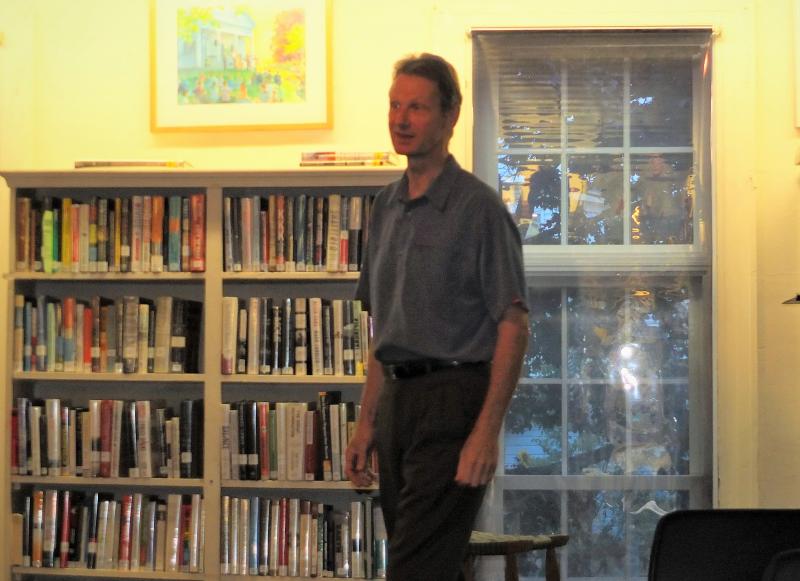“We shall not cease from exploration; And the end of all our exploring will be to arrive where we started, and know the place for the first time.”
This quote is probably the best known line from the epic T.S. Eliot work, “Four Quartets," a series of four poems, each named for a place important in Eliot’s life. The whole work is some thousand lines long, and John Farrell, a principal in Maine’s groundbreaking Figures of Speech Theatre, recited it from memory at Boothbay Harbor Memorial Library July 27.
To put the work's length in context, Shakespeare’s “Comedy of Errors” has 1,785 lines. So some might say Farrell recited at least half a play in a little over an hour. The recitation let the audience immerse itself in one of the masterpieces of 20th century literature, exploring humankind’s relationship with time and with experience itself.
Timing is everything. Eliot, like many of his generation, was deeply affected by World War I. He was in London and Oxford when the war broke out, and never served in the war, but witnessed catastrophe and its aftermath, as the war decimated Europe and the men who fought in it tried to return to a post-war life.
When he completed "Four Quartets," in 1941, Europe was two years into World War II and America was about to enter the war. Eliot feared the end of civilization, even as he sought the divine for his own life. Those themes – death, destruction, but grace, redemption and rebirth – dominate "Four Quartets."
Farrell knew the poem as a college student, and had also taken classes at the divinity school and learned a bit about Hindu mysticism. He wondered what it would be like to memorize the first 10 lines.
By memorizing short bits at a time, he eventually memorized it all. As a performer, he began to wonder what it would be like to speak the words aloud, as a text, to an audience, and then sought permission, rarely granted, from Eliot's estate's, to perform the work.
“Unlike encountering the poems in a book, hearing them recited out loud gives people a chance to absorb a complex and nuanced work in a very direct way," he said. "At the same time, I bring an actor’s sensibility to the text and a commitment to delivering the poems in a way that allows the poetry to speak for itself.”































